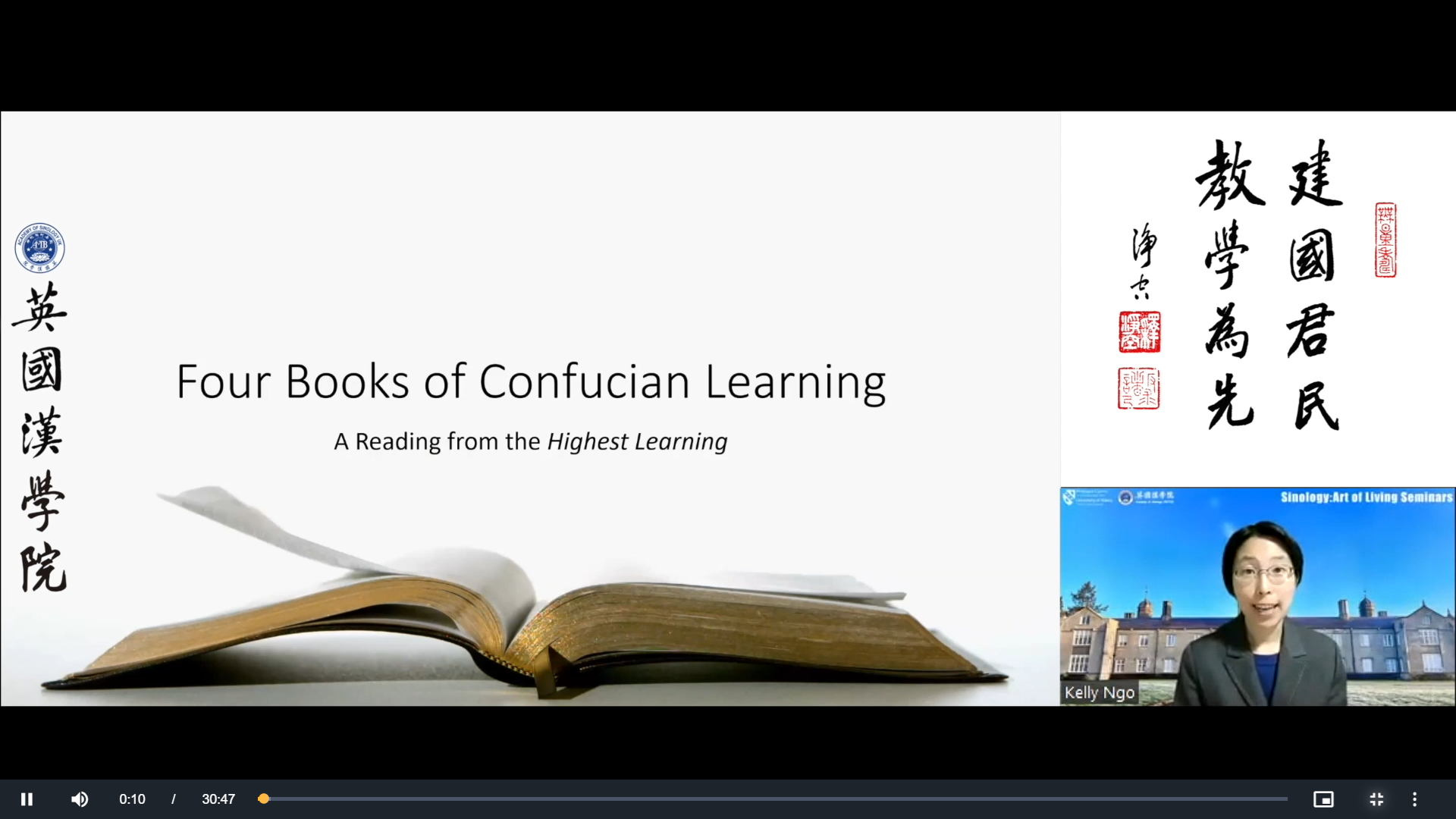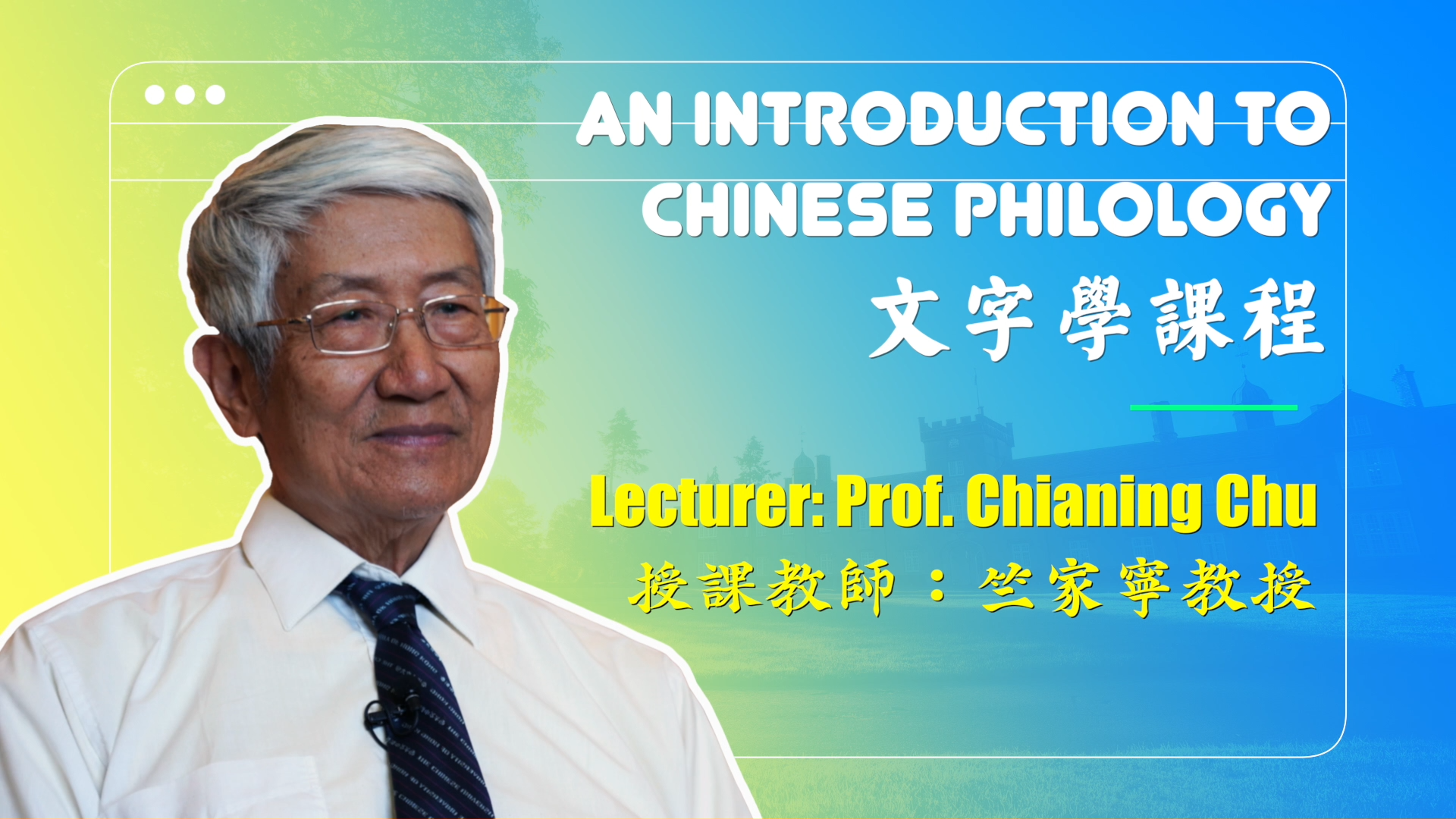BA (Hons) Sinology (Humanistic Education)
How was the development of human excellence conceived of by ancient Chinese thinkers?
What are the core principles, philosophical frameworks and governing concepts of ancient China?
What are the modern implications of sinology?
A humanistic education from the pre-modern Chinese perspective is learning to realise one’s innate human excellence. This holistic learning includes exploring intellectual, moral, social, and professional development through ancient Chinese thought.
For a taste of the Year 1 modules, see our sample lectures:
 www.sinology.org.uk/home/videos/cate?id=128&vid=516
www.sinology.org.uk/home/videos/cate?id=128&vid=516
For short introductory videos to each module:
 www.sinology.org.uk/home/videos/cate?id=130&vid=541
www.sinology.org.uk/home/videos/cate?id=130&vid=541
PATHWAY OPTIONS AND HOW TO APPLY
1.Please complete the online application form:https://apply.uwtsd.ac.uk/?IPPCode=SIHE1D&IPOSeqn=0002
2.Save a copy of the application form in PDF format and email the saved application form to sinology@uwtsd.ac.uk (Academy of Sinology).
Contact Email: sinology@uwtsd.ac.uk
Institution Code: T80
University of Wales Trinity Saint David
Tuition fee 2025/26:
Home applicants: £9,535 per year
Overseas applicants: £15,525 per year
Why choose this course?
The BA (Hons) Sinology (Humanistic Education) is the first English-taught undergraduate programme delivered by the Academy of Sinology, the University of Wales Trinity Saint David. This three-year programme covers a wide range of important topics in Chinese studies, including Chinese philology, the pre-modern education system, Confucian classics, history, and ancient economic principles.
This Sinology programme has four unique features: accessibility, application, adaptability, and an interdisciplinary approach. An additional feature of the course is that students will be given the opportunity to learn Mandarin Chinese as extracurricular classes free of charge.
1.
Accessibility: Making accessible the foundational texts of the Chinese civilisation. Works such as the Analects of Confucius and the Mencius have shaped the culture throughout East Asia. How can their insights be interpreted and made fruitful for international audiences? Being delivered in the medium of English and exploring Sinology from an intercultural perspective, the programme is expected to help facilitate cross-cultural dialogue. This programme is aimed at introducing students to the Chinese heritage as informed through these core texts – thus there is no prerequisite requirement in Chinese language ability or literary Chinese. The classes will be tailored to the student to support them in understanding both modern and classical Chinese.
2.
Application: Ancient Chinese thinkers discussed many methods and perspectives by which human excellence could be perfected – learning was part and parcel of the art of living. Based on close readings and analysis of representative works, the practices espoused by these Chinese thinkers can be interpreted from a modern lens and evaluated for resolving issues at the personal level.
3.
Adaptability: Learning ancient knowledge and lessons of the past was not only to alleviate personal problems but to inspire different solutions for societal problems. Learners will be challenged to explore how traditional Chinese wisdom can be leveraged to serve the world in addressing contemporary issues.
4.
An interdisciplinary approach: Students on this programme will develop knowledge and skills that will allow them to engage with discourses in education, history, linguistics, and economics in an interdisciplinary and methodologically diverse way.
Course Overview
The Four Books (sishu 四書) are integral modules for three years of the programme as part of furthering understanding of foundational texts in the humanistic education of late imperial China. These texts were decreed as compulsory learning for classical scholarship and public service but also significantly influenced premodern Chinese cultural values. The Four Books modules are complemented by philological training to assist with close reading of texts; the modules on the Political Thought in the Essentials of Bringing about Order from Assembled Texts (Qunshu zhiyao 群書治要) compiles diverse literature to explore the educational thought of different traditions and historiography; and the modules on economic principles challenge students to consider interdisciplinary applications of the humanistic education. Elementary education modules are taught as primers of cultural literacy prior to the Four Books module to provide a logical development of knowledge and skills in Sinology.
The five subjects are mutually enriching and are taught throughout the years, except for philology in the third year that makes time for the dissertation module. Apart from the economic principles subject requiring prerequisites, the modules are delivered such that new texts or different sections of the same compilation are taught each year. The modules are also designed to be accessible to those without prior knowledge of the texts and from a diverse academic background. As such, completion of even a single year remains a worthwhile endeavour to develop a preliminary awareness and interest in the humanistic education of Sinology for future study, research, or application in other disciplines.
Module Topics
All modules are compulsory.
Year 1 - Level 4
1.
Elementary Education in Late Imperial China I (20 credits)
2.
Four Books of Confucian Learning I (30 credits)
3.
Cultural Memory of Tang China (30 credits)
4.
Economic Principles in Traditional Chinese Philosophy I (20 credits)
5.
An Introduction to Chinese Philology I (20 credits)
Year 2 - Level 5
1.
Elementary Education in Late Imperial China II (20 credits)
2.
Four Books of Confucian Learning II (30 credits)
3.
Political Thought in the Essentials of Bringing about Order from Assembled Texts (Qunshu zhiyao) (30 credits)
4.
Economic Principles in Traditional Chinese Philosophy II (20 credits)
5.
An Introduction to Chinese Philology II (20 credits)
Year 3 - Level 6
1.
Literature for Moral Instruction in Late Imperial China (20 credits)
2.
Four Books of Confucian Learning III (20 credits)
3.
Mirroring History in Late Imperial China (20 credits)
4.
Economic Principles in Traditional Chinese Philosophy III (20 credits)
5.
Dissertation: Humanistic Education in Sinology (40 credits)
Assessment
Assessment methods vary from module to module but you can expect assessments including essays and presentations. Assessments combine academic rigour with reflection on the practical application of the principles that demonstrate a student’s ability to meaningfully integrate their knowledge and skills.
Key Information
Entry Criteria
The Academy welcomes individuals who possess enthusiasm, motivation and commitment to advancing the education of traditional Chinese culture.
• Applicants must have completed a secondary school qualification or above, or an equivalent qualification from an approved degree awarding body. Copies of the qualifications and academic transcripts must be submitted with the application.
• Recent secondary school graduates must submit successive years of academic transcripts with the application forms. A copy of the certificate(s) of secondary education must be submitted by 3 July 2025 (International Applicants) or 21 August 2025 (Home Applicants) at the latest.
• International applicants must demonstrate a sufficient level of English equivalent to a minimum Academic IELTS score of 6.5 overall, with a minimum score of 6.0 in each of the four components (reading, writing, listening and speaking), or attain a UK NARIC approved qualification from an English-speaking country. Please note that the University will only accept IELTS certificates from a UKVI-approved test centre and applicants must select the “IELTS for UKVI and Immigration Academic” category. For a list of approved centres, click here.
Career Opportunities
Through their studies, students will not only be able to interpret China in the past but also comprehend its current development. Students who successfully complete this programme will acquire skills that open up a wide range of career options, for example:
• Education and training
• Government and public administration
• Human resources
• Business administration
• Postgraduate study and research
Additional Costs
Optional
Literature (primary and academic) — £200-300 for three years; annual maximum: £100.
Bursary / Scholarship Information
You may be eligible for funding to help support your study. To find out about scholarships, bursaries and other funding opportunities that are available please visit our Bursaries and Scholarships section.
Accommodation
A range of accommodation is available at Swansea including the UWTSD student accommodation and the Student Roost . If choosing to live together with other Academy of Sinology students at the Student Roost, please email: sinology@uwtsd.ac.uk for more information.
威爾士三一聖大衛大學英國漢學院
「漢學人文教育」榮譽學士學位課程
本課程旨在探索中華傳統典籍與思想的現代意義,授課語言為英文。課程著重研究古代智慧對後代的影響,例如中華傳統經濟思想在當今商業文化中的潛在作用。總之,本課程的核心是如何運用傳統文化造福當代生活的方方面面。
為何選擇本課程?
漢學人文教育本科是英國威爾士三一聖大衛大學漢學院開設的第一個以英文授課的本科課程。這個為期三年的專業課程涵蓋了漢學研究領域一系列廣泛而重要的主題,包括漢語語言學、傳統教育體系、儒家經典、傳統經濟原理。本課程具有四個特色:易懂性、實用性、普適性、跨學科的治學方法。本課程還將提供課外的中文教學。
易懂性
本課程深入淺出,讓中華文明的傳統典籍易於理解。《論語》、《孟子》等經典博大精深,對東亞文化產生深遠的影響。如何解讀古聖先賢對宇宙人生的洞見,以利益世界各國族群?本課程從多元文化視角深入漢學,有助於推動跨文化交流。本課程目標是通過漢學經典,向學生介紹這一珍貴的人類傳統文化遺產。本課程以英文授課,不懂中文的人也能報名。
實用性
中華傳統思想家探索如何開啟人性本具的智慧與德能,教導後世將此修身養性的理念與方法,落實在日用尋常之間。在研讀儒釋道三家代表作的基礎上,進而將聖賢所倡導的行持,以現代的視角闡釋,用以解決人生的問題。
普適性
學習古代的知識和經驗教訓,不僅能夠緩解個人面臨的難題,還可以啟發我們另闢蹊徑,解決社會問題。學生們將探索如何運用中華傳統智慧,處理當今世界的種種問題。
跨學科的治學方法
學生們將通過知識和技能的培養,具備跨學科、多方法論的能力,參與教育、歷史、語言學、經濟學等學術交流。
課程概述
《四書》作為核心課程,將幫助學生門深入理解中國帝國人文教育的基礎典籍。這些經典不僅為科舉入仕的必修課,也對中華傳統價值觀有深遠的影響。作為《四書》課程的補充,漢語語言文字學課程將有助於經典的訓詁;《群書治要》課程以此治世寶典,探討不同思想源流與歷史文獻中的教育思想;傳統經濟原理課程則激發學生思考人文教育的跨學科應用。傳統蒙學教育是學習《四書》課程之前,教授文化素養的入門課程,意在循序漸進地提升學生的漢學知識與技能。漢語語言文字學、傳統蒙學教育、《四書》、《群書治要》、傳統經濟原理,這五門課程,彼此互為輔翼,相輔相成。
課程設計是每學年教授新的經典或同一部典籍中的不同章節。這些課程也是為未曾接觸中華傳統文化典籍或非漢學學術背景的學生設計的。因此,即使只完成一年的學習,從培養對漢學人文教育的初步認識和興趣的角度來看,也很有價值。這有助於未來其他學科的學習、研究及應用。
課程設置
本科一年級
- 漢語語言文字學入門 (一)
- 中國唐代文化記憶
- 中國傳統哲學中的經濟原理(一)
- 中國帝國蒙學 (一)
- 儒學四書(一)
本科二年級
- 漢語語言文字學入門 (二)
- 《群書治要》
- 中國傳統哲學中的經濟原理(二)
- 中國帝國蒙學 (二)
- 儒學四書(二)
本科三年級
- 畢業論文:漢學人文教育
- 中國帝國品德教育的典籍
- 中華傳統哲學中的經濟原理(三)
- 中國帝國晚期的歷史鏡像
- 儒學四書(三)
考核
每門課程都設有形成性和總結性評估,為學生的學習進度提供反饋,並對學習技能和學業成績進行評價。
相關問題諮詢:sinology@uwtsd.ac.uk